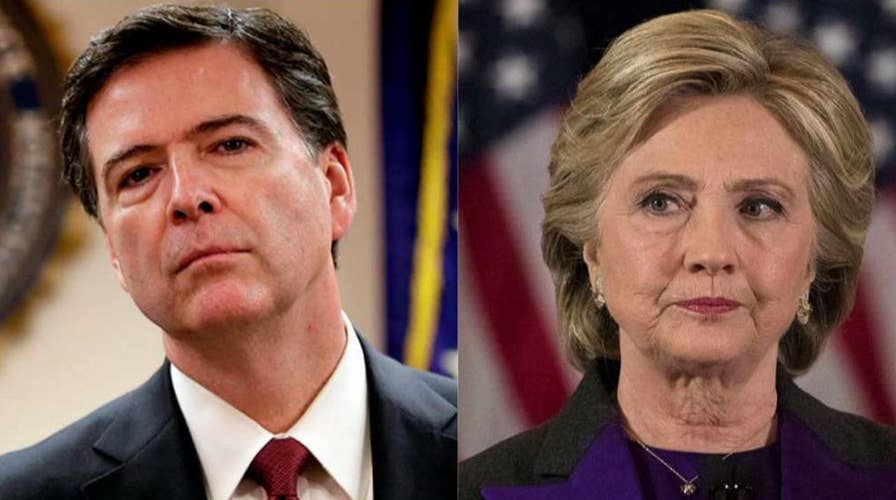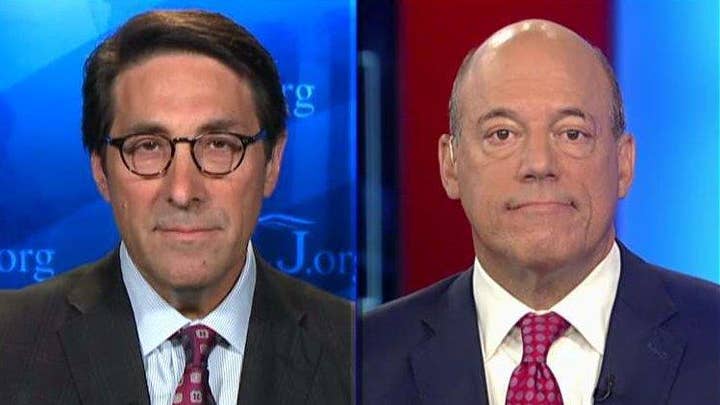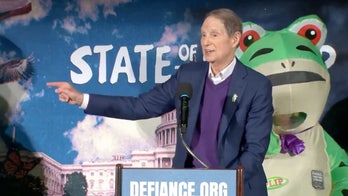'Exoneration statement' another blow to Comey's credibility?
Juan Williams and Mercedes Schapp debate allegation that then-FBI director drafted letter before completing Clinton probe
Fresh allegations that former FBI director James Comey began drafting an “exoneration statement” for Hillary Clinton well before interviewing her and other key witnesses have called into question his Senate testimony about why he decided to go public with his findings in the email case last summer.
In a June hearing before the Senate Intelligence Committee, Comey was asked whether his decision to announce the results of the investigation was influenced by then-Attorney General Loretta Lynch’s infamous meeting days earlier on an Arizona tarmac with former President Bill Clinton.
“Yes, in an ultimately conclusive way, that was the thing that capped it for me – that I had to do something separately to protect the credibility of the investigation,” Comey told Chairman Richard Burr, R-N.C.
Yet an Aug. 30 letter from Senate Judiciary Committee Chairman Chuck Grassley, R-Iowa, and Sen. Lindsey Graham, R-S.C., said that interview transcripts show Comey was drafting what they called an “exoneration statement” for Clinton weeks earlier.
President Trump, in a Friday tweet, seized on the allegations to claim the process was “rigged.”
TRUMP SLAMS 'RIGGED' SYSTEM OVER COMEY STATEMENT CLAIM
Jay Sekulow, a member of Trump’s legal team and chief counsel for the American Center for Law and Justice, suggested Comey’s June testimony could be in conflict with these new details.
“James Comey had the nerve to testify under oath that he had to come forward last July to make his statement because the [tarmac meeting] cast doubt on the scope and nature of the investigation,” he told Fox News’ “Hannity.” “The fact is, evidently, he already made up his mind three months before the investigation really got underway, so this whole thing was a fraud on the American people.”
The transcripts in question were from interviews conducted by the Office of Special Counsel, which interviewed James Rybicki, Comey’s chief of staff, and Trisha Anderson, the principal deputy general counsel of national security and cyberlaw, the GOP senators said.
The notes reflect claims that Comey “wrote a draft” of his statement around early May 2016.
Another passage suggests Comey sent around a draft in an attempt to be “forward-leaning” given the “direction the investigation” was headed.
It is possible that Comey drafted a statement meant for public release at a future date, but didn’t decide to deliver an on-camera statement until the tarmac meeting.
Comey, whom Trump fired in May amid tensions over the Russia probe, also testified in June there were “other things” that contributed to his decision to go public, including Lynch allegedly urging him to refer to the email probe as a “matter” and not an “investigation.”
“That was one of the bricks in the load that led me to conclude I have to step away from the department” in order to close the case “credibly,” he said.
A Comey contact told Fox News on Friday that the former FBI director had no comment, when asked about the new allegations. It remains unclear whether Comey could have drafted a similar statement for a scenario in which charges would be filed against Clinton.
The Grassley-Graham letter, however, reflects no such statement.
In his July 2016 announcement, Comey famously called Clinton’s email arrangement “extremely careless” though he decided against recommending criminal charges.
The new claims have, at a minimum, revived interest among Clinton’s critics in revisiting aspects of the case.
In July, nearly two-dozen House Judiciary Committee Republicans called on the Trump Justice Department to name a second special counsel – alongside the Robert Mueller team probing allegations of Russia-Trump team collusion – to probe 2016 controversies involving Clinton and the Obama administration. This covered some aspects of the FBI and DOJ’s handling of the email investigation.
A House Judiciary Committee aide told Fox News on Friday the panel is following up with the Justice Department, “and we expect the request for a second special counsel to be renewed.”
Asked about the original request, a Justice Department official said Friday, “We have received the letter.”
Earlier this week, the FBI declined to turn over files related to its Clinton email investigation by arguing there was a lack of public interest in the issue. The argument was made in a Freedom of Information Act records request.
Fox News’ Brooke Singman and Alex Pappas contributed to this report.














































